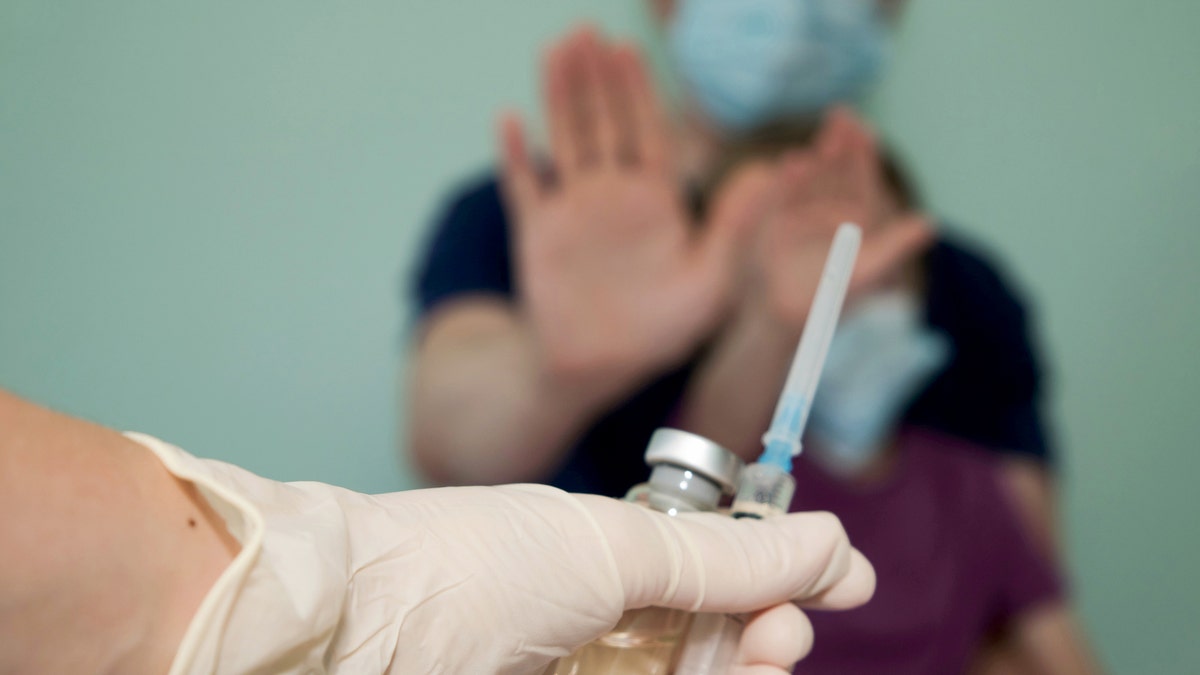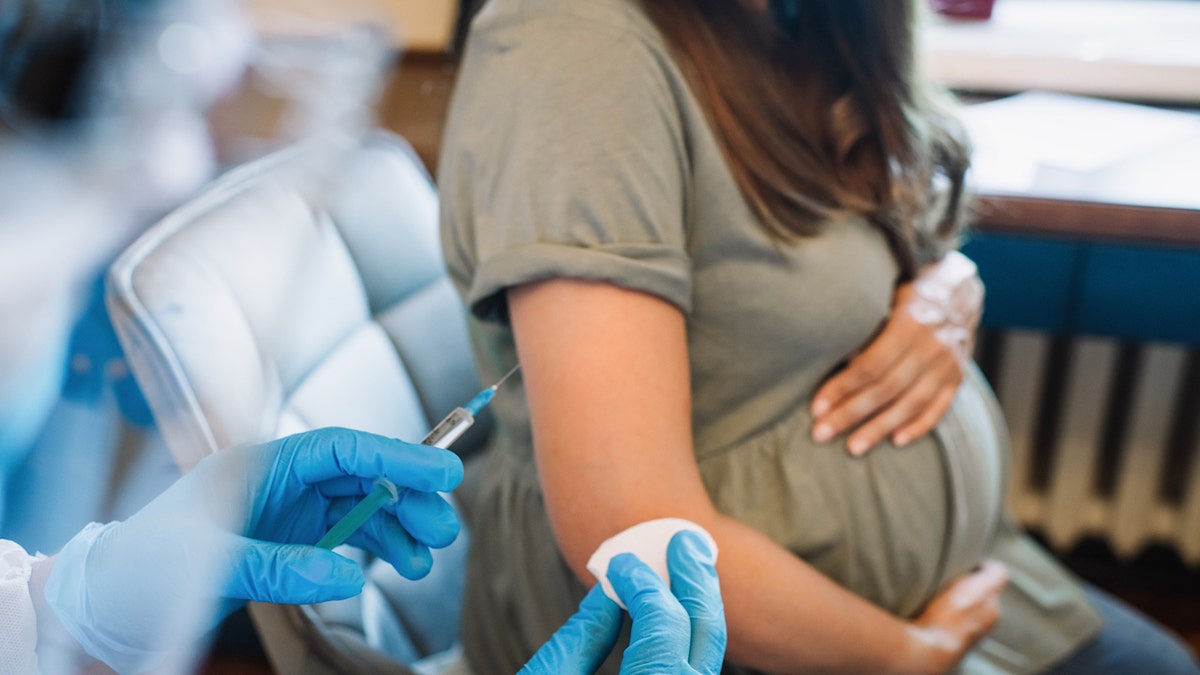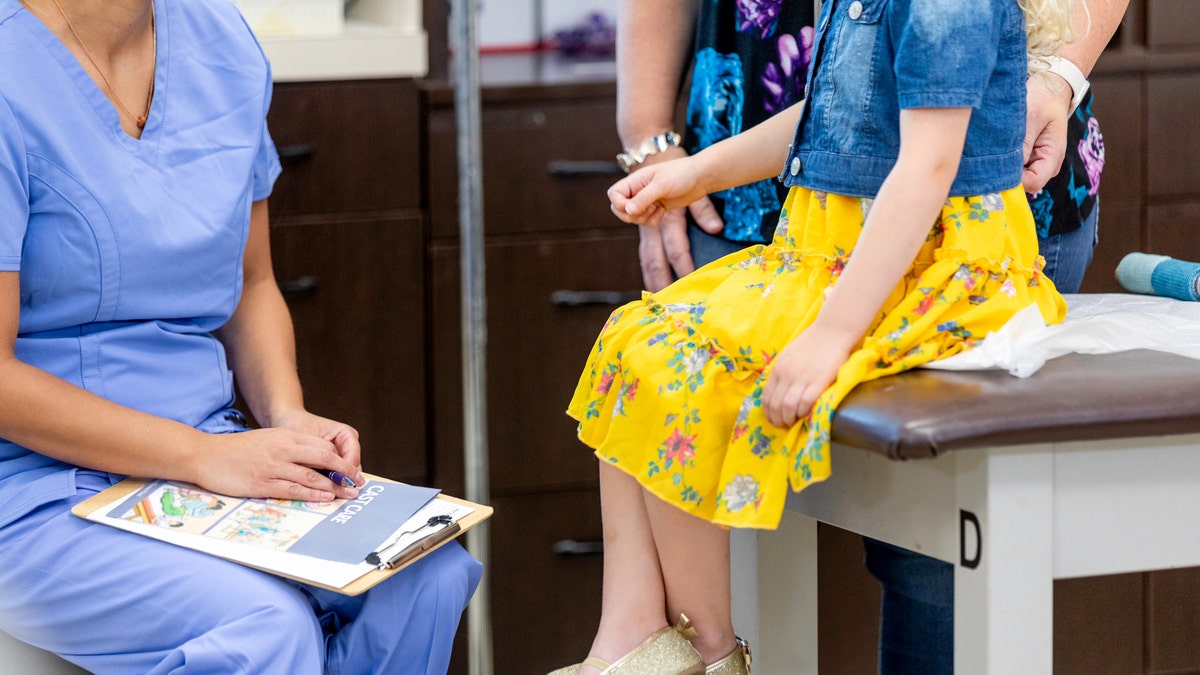NEWYou can now listen to Fox News articles!
Although it’s been more than five years since the start of the COVID-19 pandemic, the resulting vaccine hesitancy still lingers to this day — something Professor Margie Danchin is committed to helping solve.
A pediatrician at the Royal Children’s Hospital in Melbourne, Australia, Danchin is also a vaccine expert at the Murdoch Children’s Research Institute (MCRI), also in Melbourne.
Her biggest focus, she told Fox News Digital, is fighting the erosion of vaccine confidence at a time when technology is advancing — and when the need for these advances to fight emerging (and re-emerging) childhood diseases is growing.
CDC COMMITTEE MOVES TO PHASE OUT CONTROVERSIAL MERCURY INGREDIENT FROM FLU VACCINES
One prime example of this technology, according to Danchin, is the new maternal vaccination against RSV (respiratory syncytial virus) and the RSV monoclonal antibody treatment for newborns, called nirsevimab.
These are new and effective weapons against an illness that is a leading global cause of infant pneumonia and hospitalization of newborns.
In Australia, childhood vaccination rates are falling in many areas, mirroring other regions in the U.S. and around the world. (iStock)
In Western Australia and Queensland, Danchin said, nirsevimab has led to an 80% decrease in hospitalizations from RSV.
Fox News Digital spoke to Danchin about this paradox between exciting new tools of prevention and the reluctance to use them.
In Australia, childhood vaccination rates are falling in many areas, mirroring other regions in the U.S. and around the world.
STEM CELL THERAPY TO CORRECT HEART FAILURE IN CHILDREN COULD ‘TRANSFORM LIVES’
“We have the lowest levels of trust in all vaccines in more than a decade — and in effect, we’ve had global reductions in vaccine coverage for children in particular,” Danchin said.
She also pointed to the escalation of vaccine-preventable diseases, such as diphtheria, polio, whooping cough and measles.
Professor Danchin’s research focuses on vaccine hesitancy and what to do about it.

“We have the lowest levels of trust in all vaccines in more than a decade — and in effect, we’ve had global reductions in vaccine coverage for children in particular,” the pediatrician said. (iStock)
“It needs to be tackled on many levels,” she said.
Some of the biggest factors, according to the doctor, are people’s worldviews, perceptions and understanding of risk, as well as the cognitive biases they use to interpret that risk.
FDA WARNS SENIORS TO AVOID THIS VACCINE AFTER DEADLY COMPLICATIONS
“We saw through the COVID rollout, when there were adverse events associated with vaccines, people became incredibly fearful that was going to happen to them — even though the actual risk of that occurring was incredibly low, very rare,” Danchin said.
The doctor aims to address patients’ concerns while at the same time building trust.

The pediatrician noted the effectiveness of the new maternal vaccination against RSV (respiratory syncytial virus) and the RSV monoclonal antibody treatment for newborns, called nirsevimab. (iStock)
One strategy is the Vaccine Champions Program, which has been rolled out in Australia as well as five countries in the Asia-Pacific region.
“We build capacity and train healthcare providers and diverse community leaders — including religious leaders, teachers and sporting stars — on how to communicate about vaccines,” Danchin said.
Storytelling narratives can also be an effective way to convey the importance of vaccines, the doctor noted.
She said she strives to establish herself as “somebody with knowledge and expertise and credibility,” while at the same time being respectful and ensuring that parents feel their concerns are heard.
“I build rapport, and then I spend time actually addressing those concerns and sharing trustworthy information,” Danchin said.
DEMENTIA RISK COULD DIP WITH COMMON VACCINE, STUDY SUGGESTS
She also takes the time to discuss the diseases themselves, she said.
“I think we spend too much time focusing on the vaccines, which have become a victim of their own success,” Danchin said. “Parents forget why we’re vaccinating and what the diseases we’re trying to prevent could do to their children.”

“Parents forget why we’re vaccinating and what the diseases we’re trying to prevent could do to their children,” Danchin said. (iStock)
Above all, Danchin said, it’s important for people to have access to trustworthy sources of information rather than existing in “echo chambers,” where they read and share information that may not be accurate or well-sourced.
“We need trusted scientists who can actually communicate,” Danchin said.
Meeting patients where they are
Danchin emphasized that most people are not unintelligent about this topic — “they’re just very confused. They don’t know what to believe.”
It’s important to be respectful of others’ views and to “invite open conversation,” the doctor said.
“If you censor information, then people become distrusting,” she cautioned, noting that conversations must be held “with clarity, without aggression or judgment.”
CLICK HERE TO GET THE FOX NEWS APP
Danchin also said she strives to dispel the lingering concerns among some parents about the possible link between certain vaccines and autism.
To accomplish that, she listens to parents’ concerns and then “gently shares” the 25 years of research that disprove that association, she said.
“I think we spend too much time focusing on the vaccines, which have become a victim of their own success.”
“Just because you have a vaccine, and then in the next four to six months, your child’s communication skills and behavior changes, doesn’t mean that X caused Y,” Danchin said.
“If you have a banana and then you have a reaction, it doesn’t mean the reaction is from eating the banana.”
CLICK HERE TO SIGN UP FOR OUR HEALTH NEWSLETTER
During the pandemic, Danchin noted, there were many instances where people felt that if an elderly person had a COVID vaccine and then died a week later, it was clearly the vaccine that caused the death, even though it could have been due to a stroke or heart attack.
“So that’s what I do with families — I gently explain the research. I show them that there’s absolutely no evidence,” she said.

“Just because you have a vaccine, and then in the next four to six months, your child’s communication skills and behavior changes, doesn’t mean that X caused Y,” the pediatrician said. (iStock)
“There have been millions of children who have not received the MMR vaccine and others who have received it, and there’s been no difference in the incidence of autism.”
For more Health articles, visit www.foxnews.com/health
Danchin aims to approach parents “with clarity, without aggression, without judgment, and by using a ground-up approach.”
At the same time, the doctor said she and her fellow researchers “are constantly monitoring for vaccine side effects (or vaccine safety concerns) in the community.”
Visit go.fox/MCRI to donate or to learn more about MCRI’s important research.



